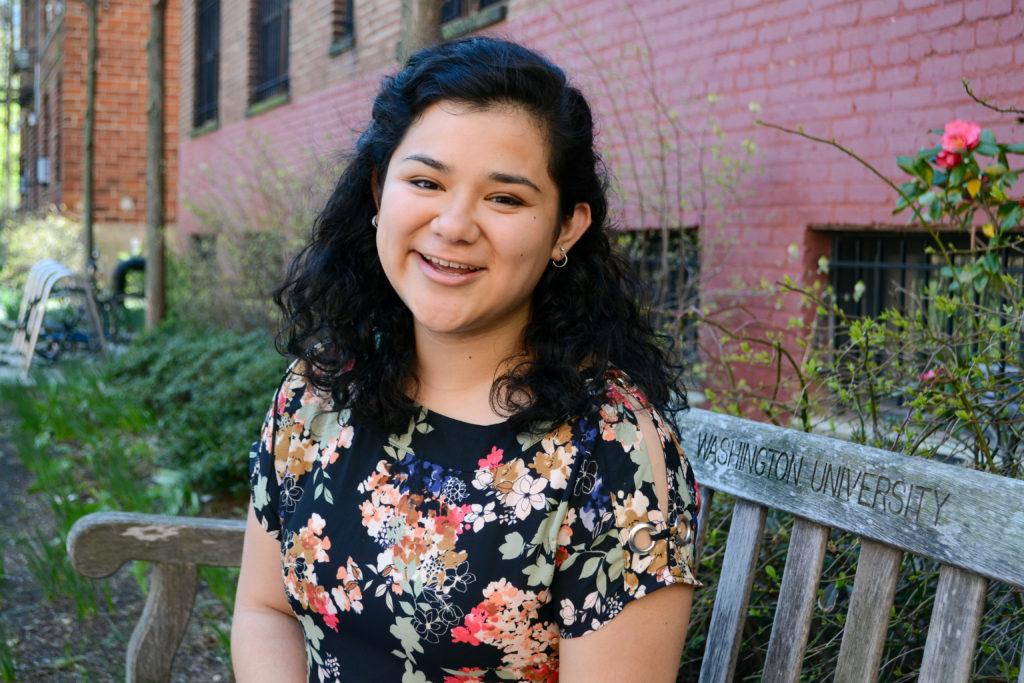Students are opting to scratch a fourth year of college and jump straight into graduate programs or work.
More than 10 students said in interviews that they are graduating in three years to avoid the cost of an extra year and begin a career as soon as their academic requirements are satisfied. Experts said the uptick in students pursuing three-year tracks is likely attributed to a growing desire to cash in on a graduate degree – a tool that’s increasingly needed to land a job in today’s workforce.
Oliver Street, the executive director of enrollment retention, said between 2 and 4 percent of students graduate in fewer than four years, which they can accomplish by taking AP credit courses in high school, entering a dual-enrollment program or taking a higher number of credits during their time at GW.
“Faculty and staff work with students to ensure they take a reasonable course load each semester so they can balance their in-class learning with out-of-class learning opportunities to receive a full and robust GW experience regardless of the length of time they remain on campus,” he said in an email.
But for 11 students, a tuition nearing $70,000 is driving them to leave the University early to save money that could go toward travel or graduate school. The cost of attending GW will grow by about 4 percent next academic year.
Gage Cohen, a third-year senior studying international affairs, said he entered college with 24 AP credits under his belt – the maximum number of credits that can be transferred from high school.
He said he wanted to graduate in three years to slash the extra year of college tuition, but administrators often pushed him to stay an extra year by requiring him to take general courses that don’t pertain to his major.
“Some of the requirements they do put in are because they’re pushing people towards four years,” he said. “But I do think they have an economic incentive to push people to stay longer here because they’re getting more money.”
Students have long criticized the University for its transactional nature – a concern that University President Thomas LeBlanc has made an effort to address since he arrived on campus.
High tuition costs have driven students at universities across the country to pack their course loads and pursue a three-year track, according to a series published in the Chronicle of Higher Education published earlier this month. In the series, the Chronicle reported that colleges are increasingly offering accelerating programs to accommodate a growing group of frugal students hoping to get the most out of their tuition dollars.
Rebecca Durango, a third-year senior, said as soon as she found out her AP credits could help her graduate early, she packed her schedule each semester because she’d be in more debt if she stayed an extra year.
“It sounds cool to be able to graduate in three years,” she said. “It was partially practical and logistical, and partially ‘oh, that sounds like a cool accomplishment.’”
Experts said they have seen an increase in students pursuing three-year tracks at their respective universities because the move alleviates the financial burden of an extra year at universities with skyrocketing price tags. They said if these programs grow in popularity, schools should expand academic advising services so students can plan out a more detailed schedule to graduate early.
Peter Lake, a law professor at Stetson University in Florida, said he’s seen more students pursuing three-year tracks so they can pocket money and use it to pay for post-graduation activities, like graduate programs or travel.
But he said tuition revenue could plummet if more students cut their last year of college, and universities would lack the budget to fund student activities, sports or food services. GW has historically relied on its tuition to fund about 60 percent of its operating budget.
“As more programs are successful and become accepted, it becomes easier and easier to actually do it,” he said, referring to three-year programs. “I wouldn’t be the least bit surprised if we see more of this happening down the road.”
Josh Boyd, the director of undergraduate studies at Purdue University, attributes student interest in three-year programs to a growing number of career-driven students who don’t want to prolong their college years.
Purdue’s College of Liberal Arts launched a new program catered to students on a three-year track last fall, where students work with an adviser to plan a course schedule to graduate early.
“When you go to college, there’s an opportunity cost of four years of your life, so it’s not just money that you’re spending – it’s that you’re putting everything else on hold for four years,” Boyd said. “These programs get students into the workforce a year earlier so they can get started on their career path.”





